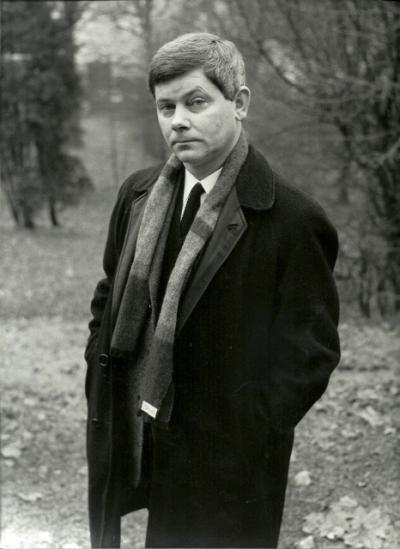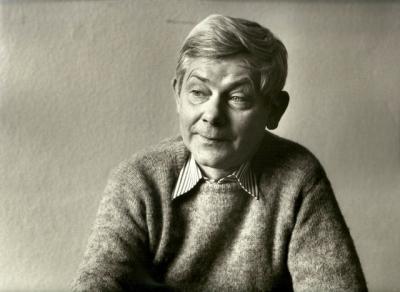Poetry, myths, Europe: Zbigniew Herbert

The second time Herbert came to Germany was at the invitation of the Inter Nationes association, an organisation whose mission was to disseminate German cultural heritage abroad, a kind of Goethe Institute (with which the association actually merged in 2000). The association was close to the Federal Press Office. The fact that the Polish poet was invited in the middle of 1966 is remarkable because the official turning point in the Federal Republic’s Poland policy under Willy Brandt was not to come into effect until December 1966. During this time, Herbert Günter got to know Grass, Günter Kunert and Ernst Jandl. In the years that followed, Herbert himself was to become a cultural mediator. He supported his publishing house in the search for Polish authors and translated Max Frisch’s drama “Triptych” into his mother tongue.
When he was awarded the City of Münster prize for European Poetry in 1997, his travelling days were well behind him. Jurek Becker accepted the prize for him because the poet was suffering from severe asthma. On the occasion of this prize, Herbert wrote: “I don’t really care if you bestow this honour on me as a European. I never stopped being a citizen of this bloody peninsular which – with a few exceptions – is so full of a lack of freedom, tyranny, suffering, exploitation, hypocrisy, pyres and wars.” Of course, Becker did not read these lines out at the prize ceremony. They are also an astonishingly harsh judgement of Europe. Otherwise, he would not have had this prize awarded – and today would not generally be considered by many as a Polish poet, but as a European poet from Poland.
Durs Grünbein, a well known author from Dresden, wrote in an open letter about how he followed the call of Herbert’s books and travelled to Orvieto and Amsterdam to see the works of art of Italian and Dutch masters. Is it not the enthusiasm, the respect, the curiosity for the shared and yet foreign history and culture in Europe that sums up this Europe? Then every Grünbein that travels is a success. But what is success anyway? This could be a question posed by “Mr Cogito”. Mr Cogito is a recurring figure in Herbert’s work. As a type of lyrical alter ego of the author, Mr Cogito reflects on a whole range of things which - typically - appear contradictory but yet do actually belong together: life as a Pole 30 years after the Second World War and fundamental existential questions; cowardice, suffering and death on the one hand and his relationship with his parents on the other.
“Ultimately, Cogito’s ‘weaknesses’ – his inability to have abstract thoughts, his rejection of dogmatism, his very human, petty fears and anxieties, his feelings of inadequacy and the associated self-irony - become his greatest strengths and virtues.” This is how the American literary critic R. K. Wilson summarises what makes Herbert Zbigniew’s poems so human and consequently so important.
In spite of his many international awards, the man from Lemberg remained a sociable person. Many of his companions from Germany, Poland and America highlight his charming nature. One biographer claims that he was also a bon vivant at times who was not averse to romance.[1]
Zbigniew Herbert died in Warsaw (Warszawa) on 28 July 1998 . He was posthumously awarded the Order of the White Eagle, Order Orła Białego, the highest civilian honour in Poland. In 2008 and 2018, i.e. ten and twenty years after his death, Poland created the Zbigniew Herbert years to remember him, with events being held in Austria as well. In 2010 the Herbert Foundation (Fundacja im. Zbigniewa Herberta) was founded which has awarded an international prize for literature every year since 2013 (in 2020 to Durs Grünbein already mentioned). His works have been translated into 38 languages (which puts him in fifth place on the list of Polish authors) – and into English several times. They are still published today and read and critiqued by literary scholars.
Marek Firlej, January 2021
[1] Kraszewski, Charles, Review: Joanna Siedlecka, Pan od poezji: o Zbigniewie Herbercie [Lord of Poetry: About Zbigniew Herbert], in: The Polish Review 47 (2002), 416–420. http://www.jstor.org/stable/25779351














